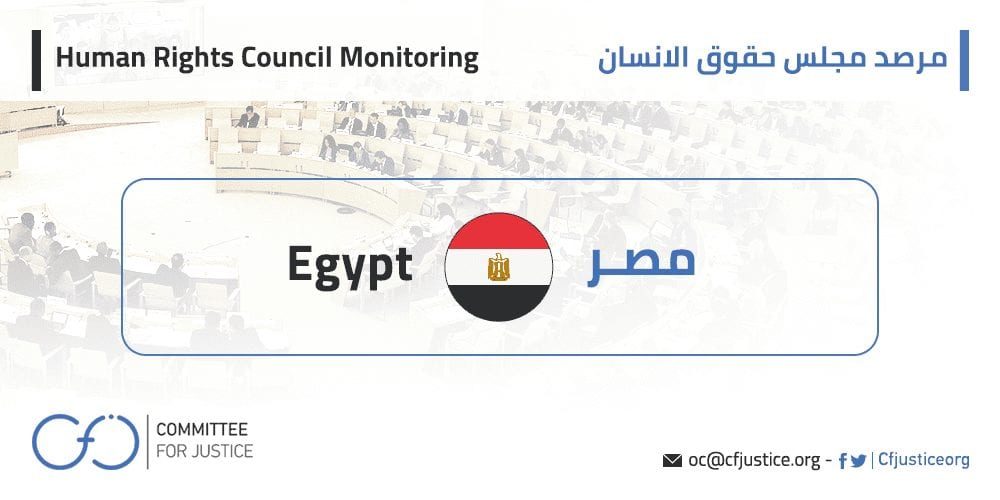31st of August 2017 – Human rights council monitor
On Saturday, 31st of August, “Committee for Justice” – a human rights organization based in Geneva – commented on the statement by the special rapporteur on freedom of expression, and the special rapporteur on Human rights and counter-terrorism, regarding the oppressive procedures done by Egyptian authorities in blocking or shutting down websites.
CFJ said “This statement is one of the strongest international reactions, in response to suppression of freedom of circulation of information and arbitrary measures taken by the Egyptian authorities to block human rights organizations’ websites as well as news websites since the start of this campaign in May 2017.
CFJ added, “Egyptian authorities shouldn’t use the term ‘countering terrorism’ as a pretext to blocking information, and using coercive measures with no judicial control, to shut the voices, and close the public domain in Egypt”.
In their issued statement, Special rapporteur on freedom of expression, David Kaye and the special rapporteur on Human rights and counter-terrorism, Fionnuala Ní Aloáin, expressed their extreme concern regarding the reports that showed the expansion of the list of websites blocked or shut down by Egyptian authorities for claims of “spreading lies” and “supporting terrorism”, the thing which represents a clear example of the continuous assault on freedom of expression.
Both experts affirmed that “situation for journalism and the freedom of expression and access to information in Egypt has been in crisis for several years”, which didn’t stop at blocking websites, but also took “many forms, including the unlawful detention and harassment of journalists and activists”, and stated that “Denying access to websites of all sorts, but especially news sites, deprives all Egyptians of basic information in the public interest”.
However, the Special Rapporteurs added that the lack of public record and transparency about the blockings, and the lack of prior or subsequent notification, make it difficult to verify the total number, and said that “Limiting information as the Egyptian Government has done, without any transparency or identification of the asserted ‘lies’ or ‘terrorism’, looks more like repression than counter-terrorism”.
The two experts also noted that the authorities have not provided any evidence to prove that blocking websites would meet the tests of international human rights law. They recalled that, under international law, any such measures must be provided by law and be necessary and proportionate to meet a legitimate objective.
The Special Rapporteurs and other UN human rights experts have previously urged the Egyptian Government to release journalists, and to lift all restrictions on their freedom of movement.
“We want to take this opportunity, to also remind the authorities of our grave concern for the rights of all those detained based on their writing or their work in public space,” they concluded.
The Egyptian government’s campaign started in the 24th of May 2017, with the shutting down of several websites, as well as blocking others in Egypt, with no prior official announcement. Internet users in Egypt were surprised with the blockage, with no clarification form any governmental body, or telecommunication companies. In the same day, the official “Middle East News Agency” announced that 21 websites were blocked, citing what the agency called (high-level security source).
According to “Freedom of Though and Expression” – an Egyptian local firm -, during the period between 24th of May to 29th of August, 2017, 405 websites were blocked in Egypt. This blockage included a group of Egyptian newspapers’ websites authorized to work in Egypt.






